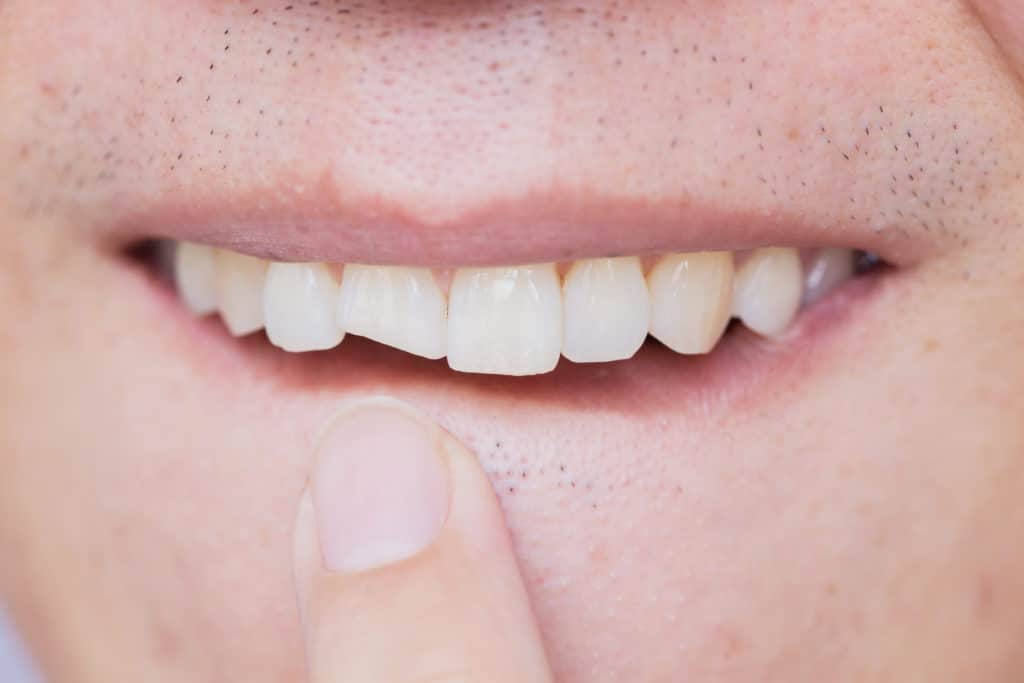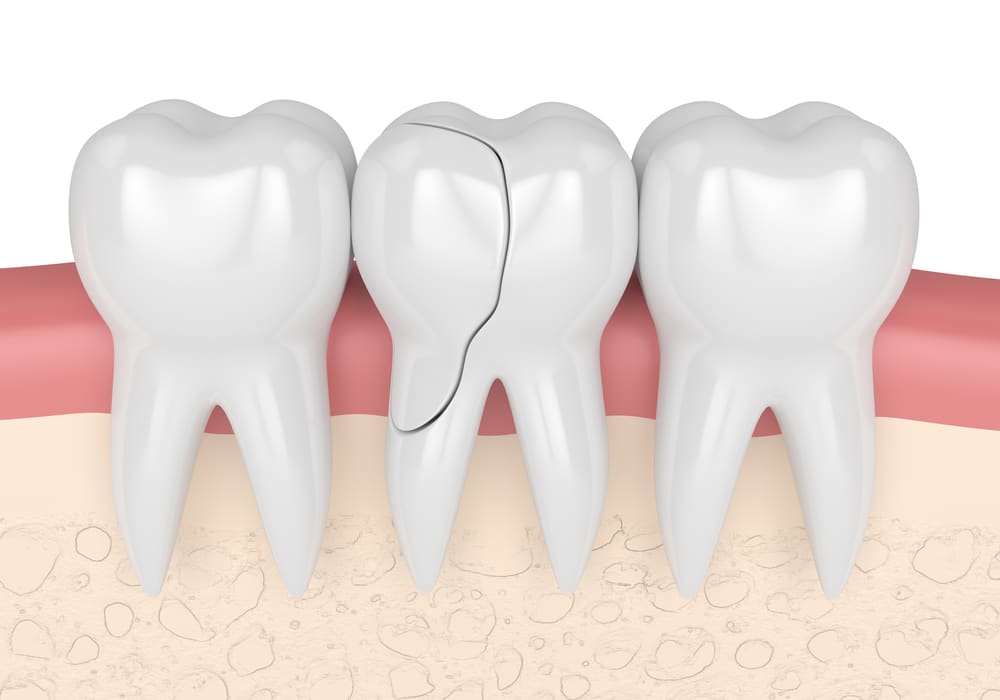Teeth cracking causes major concern and for good reason – teeth don’t grow back. While trying to prevent a cracked tooth is your best bet, sometimes prevention doesn’t work and you still end up with cracked teeth. Understanding how teeth crack can help you try to prevent them better. In the event cracked teeth occur, you can also understand both how they did and what your next steps are.
What Causes a Cracked Tooth?

There are a number of reasons why teeth crack. These include:
- Teeth grinding and clenching
- An overly large filling that strains and breaks your tooth
- Chewing or biting something hard – like popcorn kernels
- Blunt force trauma, like getting hit in a contact sport
- Gum disease, which can lead to root fractures
- Age, because teeth weaken as we get older
- Abrupt changes in mouth temperature, like drinking something really hot and then something really cold
Being conscious of the reasons behind a cracked tooth can help you be more mindful in your goal to prevent them or help you understand how you got cracked teeth.
How Can You Tell If Your Tooth Is Cracked?
If you’re worried about if you have a cracked tooth, depending on the type of crack, you’ll probably be able to tell. Some signs that you have a cracked tooth or cracked teeth are:
- Pain when chewing/biting, or that comes and goes
- You can see it/feel it
- Abnormal sensitivity
- Gum swelling/inflammation
A cracked tooth can also lead to further complications, like fever and bad breath, and even dental infection. Teeth can become loose, and your gums can start bleeding.
Tooth cracks don’t show up on dental x-rays, so your dentist will have to use other methods to find if you have a crack. They may use a dental dye, which would highlight the crack. They can use other standard dental exam methods as well, such as probing your gums, using a dental magnifying glass, having you bite down on something, and ask you questions.

What Kinds Of Cracks Are There?
There are several different ways teeth can crack, some serious, some less so. While some cracks are less serious than others, it’s important to see a dental professional for any type of cracked teeth.
The less serious kind of cracked teeth is known as craze lines. These are simple cracks on your tooth’s enamel, and typically don’t pose significant problems. Your dentist can easily round and polish them away.
The other kinds of cracked teeth, however, are more serious. They are: a cracked tooth, a cracked cusp, split teeth, and a root fracture.
- A cracked tooth is when you have a crack extending from the top of the tooth to the root, sometimes into the root itself.
- A cracked cusp is when the cusp of the top of your tooth where you bite cracks.
- A split tooth is as it sounds – a tooth split in two. Split teeth often result from untreated cracked teeth, and typically need extraction for at least part of the tooth, however, it can be possible to save both parts of it.
- A root fracture, which is when the crack starts below the gum line and goes up. These usually need to be extracted and treated with a root canal and a crown.
How Do You Fix Cracked Teeth?
If you have a cracked tooth, you don’t need to worry – it can be fixed. Cracked teeth can be fixed with several different methods, depending on the kind of crack and the severity of it.
Craze lines don’t typically require treatment, but it is still best to see a dental professional about them, as a preventative measure.
Other kinds of cracked teeth can be fixed by:
- Bonding – where plastic resin fills in the cracks
- Contouring, which is where rough edges are polished away
- Veneers, which fit over the surface of a tooth
- Crowns, which fit over teeth and look like a natural tooth
- Root Canals – where infection is cleared out of the root. This typically pairs with getting a crown.
- Extraction – in extreme cases, the entire tooth needs to be removed.
How Do You Prevent Cracked Teeth?

Teeth don’t heal like skin does. It is best to do all in your power to avoid cracking your teeth, especially since a serious cracked tooth could result in you losing that tooth – and teeth don’t grow back. You can prevent teeth from cracking by wearing a mouthguard when playing sports, especially contact sports, and by avoiding biting anything hard, like the pit of a fruit, or using your teeth to open things. If you struggle with clenching or grinding your teeth, talk to a dental professional about options to protect your teeth, such as a retainer. Good dental hygiene can also prevent cracked teeth because healthy teeth are stronger, and ergo, less likely to crack.
Questions About Cracked Teeth?
Please contact David G. Johnson DDS for any questions or concerns about cracked teeth or any other dental health issues. You can schedule an appointment today!


